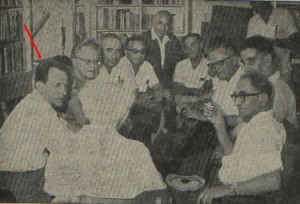In the wake of Barack Obama’s victory in the U.S., there have been a spate of op-eds and blog posts on whether an Arab could ever become prime minister of Israel. Some present it as a challenge to Zionism, at least as conventionally conceived, while others try to explain why such a thing could not, should not ever be. The latest installment is Daniel Gordis’s piece in The Jerusalem Post.
Gordis is correct in saying that an Arab majority in Israel would be the end of Israel as a Jewish state, and that an Arab majority in Israel’s parliament, the Knesset, would reflect that loss of majority status. Zionism requires a Jewish majority–and not just a bare majority but a large one–for the state to be Jewish. This is the reasoning that means the two-state solution is the only way of preserving Israel as a Jewish state.
But while the election of an Arab to head Israel’s government, while improbable, is certainly not impossible,






